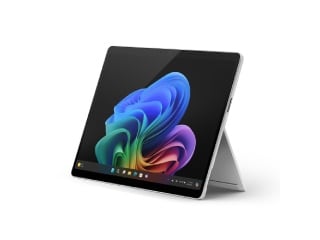- Home
- Internet
- Internet News
- Google to Consider Page Speed in Mobile Search Ranking From July
Google to Consider Page Speed in Mobile Search Ranking From July

Google on Wednesday announced it will start considering page speed while ranking websites in mobile searches. Google's 'Speed Update', where it has promised to lower the rankings of slow webpages, will be in effect starting from July 2018. The search giant has cited "people really care about the speed of a page" as a reason for using a page's speed in the ranking algorithm for mobile searches. It said that the update will apply the same standard to all pages irrespective of what technology they are built with.
In a blog, Google explains the 'Speed Update' will only affect pages that "deliver the slowest experience to users and will only affect a small percentage of queries." Interestingly, Google also says that a slow webpage may still rank higher if it has relevant content. Developers have been presented with tools to test their webpages to make sure they don't get penalised in terms of ranking. Google noted that developers can use the Chrome User Experience Report, Lighthouse, and PageSpeed Insights to evaluate their webpage's search performance. "The intent of the search query is still a very strong signal, so a slow page may still rank highly if it has great, relevant content," Google says in the blog.
Notably, Google has been ranking desktop searches based on speed since 2010, so the move on mobile searches is not without precedent. Google had said,"Faster sites don't just improve user experience; recent data shows that improving site speed also reduces operating costs."
Google has been focusing on speed for quite a while now. In October last year, it had decided to discontinue its Instant Search feature as well. The move was taken to "focus on ways to make Search even faster and more fluid on all devices." Before this, in 2016, Google had introduced its Accelerated Mobile Pages (AMP) project with the aim to reduce the loading times for mobile webpages. The sped-up, cached versions of mobile pages made their way to Google's search results instead of being limited to just the Top Stories.
Additionally, in December 2017, Google started to roll out its new, mobile-first search index to some websites. While introducing the project in 2016, Google had said,"Although our search index will continue to be a single index of websites and apps, our algorithms will eventually primarily use the mobile version of a site's content to rank pages from that site."
Catch the latest from the Consumer Electronics Show on Gadgets 360, at our CES 2026 hub.
Related Stories
- Samsung Galaxy Unpacked 2025
- ChatGPT
- Redmi Note 14 Pro+
- iPhone 16
- Apple Vision Pro
- Oneplus 12
- OnePlus Nord CE 3 Lite 5G
- iPhone 13
- Xiaomi 14 Pro
- Oppo Find N3
- Tecno Spark Go (2023)
- Realme V30
- Best Phones Under 25000
- Samsung Galaxy S24 Series
- Cryptocurrency
- iQoo 12
- Samsung Galaxy S24 Ultra
- Giottus
- Samsung Galaxy Z Flip 5
- Apple 'Scary Fast'
- Housefull 5
- GoPro Hero 12 Black Review
- Invincible Season 2
- JioGlass
- HD Ready TV
- Laptop Under 50000
- Smartwatch Under 10000
- Latest Mobile Phones
- Compare Phones
- Vivo Y500i
- OnePlus Turbo 6V
- OnePlus Turbo 6
- Itel Zeno 20 Max
- OPPO Reno 15 Pro Mini 5G
- Poco M8 Pro 5G
- Motorola Signature
- Vivo Y50e 5G
- Lenovo Yoga Slim 7x (2025)
- Lenovo Yoga Slim 7a
- Realme Pad 3
- OPPO Pad Air 5
- Xiaomi Watch 5
- Huawei Watch 10th Anniversary Edition
- Acerpure Nitro Z Series 100-inch QLED TV
- Samsung 43 Inch LED Ultra HD (4K) Smart TV (UA43UE81AFULXL)
- Asus ROG Ally
- Nintendo Switch Lite
- Haier 1.6 Ton 5 Star Inverter Split AC (HSU19G-MZAID5BN-INV)
- Haier 1.6 Ton 5 Star Inverter Split AC (HSU19G-MZAIM5BN-INV)

















